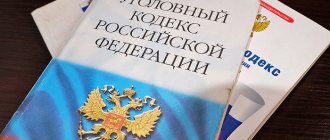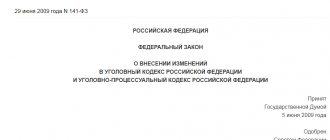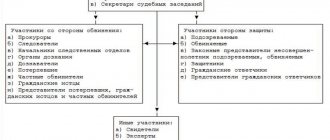1. A defense attorney is invited by the suspect, accused, his legal representative, as well as other persons on behalf of or with the consent of the suspect, accused. The suspect or accused has the right to invite several defense attorneys. 2. At the request of the suspect, the accused, the participation of a defense attorney is ensured by the inquiry officer, investigator or court.
3. If the invited defense attorney fails to appear within 5 days from the date of filing a request to invite a defense attorney, the inquiry officer, investigator or court has the right to invite the suspect, accused to invite another defense attorney, and in case of his refusal, take measures to appoint a defense attorney. If a defense attorney participating in a criminal case cannot take part in a specific procedural action within 5 days, and the suspect or accused does not invite another defense attorney and does not apply for his appointment, then the inquirer or investigator has the right to carry out this procedural action without the participation of a defense attorney, with the exception of cases provided for in paragraphs 2 - 7 of part one of Article 51 of this Code.
4. If within 24 hours from the moment of detention of a suspect or the detention of a suspect or accused, the appearance of a defense attorney invited by him is impossible, then the inquiry officer or investigator takes measures to appoint a defense attorney. If the suspect or accused refuses the appointed defense attorney, investigative actions with the participation of the suspect or accused may be carried out without the participation of a defense attorney, except for the cases provided for in paragraphs 2 - 7 of part one of Article 51 of this Code.
5. If a lawyer participates in a preliminary investigation or trial by appointment of an inquirer, investigator or court, the costs of remunerating his labor are compensated from the federal budget.
Commentary on Article 50 of the Code of Criminal Procedure of the Russian Federation
1. The procedure for inviting a lawyer (other person) to participate as a defense attorney by the legal representative of the suspect (accused, etc.), as well as other persons on behalf and (or) with the consent of the suspect (accused, etc.) is usually as follows. The legal representative, for example, the father of the accused, enters into an agreement with the lawyer, after which the accused himself gives written consent or submits a petition for the admission of this lawyer to participate in the criminal trial as his defense attorney <324>. ——————————— <324> See: Resolution of the Presidium of the Supreme Court of the Russian Federation of September 2, 1992 // Bulletin of the Supreme Court of the Russian Federation. 1993. N 2.
2. If the suspect (accused, etc.) has agreed to allow one defense lawyer to participate in the criminal process, and one of his relatives has entered into an agreement with another lawyer, which of them will take part in the criminal proceedings or whether they will to participate in the criminal process jointly, it is up to the suspect (accused, etc.) to decide, and not the investigator (interrogating officer, etc.).
3. The legislator did not say anything about what the form of the order should be. In this regard, both oral and written instructions should be recognized as legal. The main thing is that from the content of the order it follows that the suspect (accused, etc.) entrusts to a specific person the choice, invitation of a lawyer (another person) and the conclusion of an agreement with the latter (obtaining verbal consent from a person who is not a lawyer) to provide the suspect ( the accused, etc.) legal assistance at one or another stage of the criminal process (or during the entire criminal proceedings).
4. Inviting a person to participate in a criminal trial as a defense attorney can be carried out not only on instructions, but also “with the consent” of the suspect (accused, etc.). “With consent,” that is, when the suspect (accused, etc.) does not object to a specific person taking upon himself the function of finding and entering into an agreement with a lawyer (agree with another person) who will defend the suspect (accused, etc.). ).
5. Moreover, it should be borne in mind that if there is an agreement to provide legal assistance at the stage of preliminary investigation by a strictly defined lawyer (other person), the participation of other lawyers (other persons), whose consent to participate in the criminal process as a defense lawyer for the suspect (accused, etc.) .) did not give, is recognized as a violation of the requirements of the criminal procedure law <325>. Possible exceptions to this rule are enshrined in parts 2 and 3 of the commented article ——————————— <325> See: Determination of the Judicial Collegium for Criminal Cases of the Supreme Court of the Russian Federation dated May 24, 1995 // Bulletin of the Supreme Court of the Russian Federation. 1996. N 2.
6. The etymological analysis of the word “several” reveals one important characteristic of the right of a suspect (accused, etc.) - to have “several” defenders. From the perspective of the Russian language, “several” means “some, small amount” <326>. Accordingly, by using the specified numeral in Part 1 of the commented article, the legislator thereby introduced into the criminal process a ban on inviting a large number of lawyers (other persons) to participate as defenders of one suspect (accused, etc.). ——————————— <326> See: Ozhegov S.I. Decree. op. P. 352; and etc.
7. The participation of the defense attorney by the investigator (interrogating officer, etc.) is “provided for,” as Part 2 of the commented article says. The legislator does not specify the methods of such provision. Therefore, this term can be understood as any activity not prohibited by law aimed at organizing (providing the appropriate opportunity for the suspect (accused, etc.)) participation in the criminal process of a defense attorney on the side of a specific suspect (accused, etc.). Ensuring the participation of a defender cannot be limited to simply refusing to oppose it. Ensuring the participation of a defense attorney is the active actions of the investigator (interrogator, etc.), the result of which is to provide the suspect (accused, etc.) with a real opportunity to use the help of a defense attorney. The investigator (inquiry officer, etc.) must do everything possible on his part to ensure that the suspect (accused, etc.) has a defense attorney. If the suspect (accused, etc.) was not provided with a defense attorney, and the corresponding petition was filed, it should be considered that the investigator (investigating officer, etc.) did not fulfill his duty to ensure the participation of the suspect’s (accused, etc.) defense attorney.
8. Part 2 of the commented article does not introduce any restrictions on the number of defense attorneys whose participation must be ensured by the investigator (interrogating officer, etc.). Nothing is said about whether this obligation to provide only defense lawyers, or whether at the request (petition) of the suspect (accused, etc.), the investigator (inquiry officer, etc.) is obliged to ensure participation in the criminal process along with the lawyer and persons , which is not one. Part 1 of the commented article establishes the right of the accused to have several defense attorneys. In this regard, it is consistent to state that upon receipt of a request from the accused, provide him with the help of a second, third, etc. (several) defense counsel, the investigator (inquirer, etc.) has no legal grounds to refuse to satisfy it.
9. The situation is somewhat different with ensuring participation in a criminal trial as a defense attorney along with a lawyer for a person who is not a lawyer. If the accused turned to the investigator (inquiry officer, etc.) with a request to ensure the participation in the criminal process of a person who is not a lawyer, then even in the case when this person is not subject to in accordance with Part 1 of Art. 72 of the Code of Criminal Procedure for challenge, the stated petition is not subject to satisfaction. Based on those enshrined in Part 2 of Art. 49 of the Code of Criminal Procedure rules, it goes beyond the powers of the investigator (interrogating officer, etc.). One of the close relatives of the accused or another person who is not a lawyer, whose admission the accused applies for, may be allowed to participate in criminal proceedings as a defense attorney only by determination or order of the court, and only in the case when a defense attorney who is a lawyer is already participating in the case. .
10. The meaning of the concept “the investigator (inquiry officer, etc.) ensures the participation of the defense attorney in criminal proceedings” will not be fully explained, unless one more important point is mentioned. The investigator (inquiry officer, etc.) has the authority to take measures to appoint a defense attorney. Meanwhile, this is the last stage of ensuring the participation of a defense lawyer in the criminal process. Before starting it, the investigator (inquirer, etc.) must provide the suspect (accused, etc.) with the opportunity to invite a person chosen by him personally and (or) his legal representative (another person on behalf of or with his consent) who will act as defender; notify persons who are entrusted by the suspect (accused, etc.) with inviting a person to participate in criminal proceedings as his defense attorney, etc. And only if the suspect (accused, etc.) refuses to exercise his right to invite a person to participate in criminal proceedings as a defense attorney personally (through other persons) or for objective reasons it is impossible to exercise it at the moment, the investigator (inquirer, etc.) at the request the suspect (accused, etc.) ensures the participation of an appointed defense attorney in the criminal process. Violation of this rule is a significant violation of the criminal procedure law and may lead to the reversal of the sentence <327>. ——————————— <327> See: Review of judicial practice of the Supreme Court of the Russian Federation “Review of cassation practice of the Judicial Collegium on criminal cases of the Supreme Court of the Russian Federation for 2008” // Bulletin of the Supreme Court of the Russian Federation. 2009. N 7.
11. Part 3 of the commented article talks about the day of application of the “petition to invite a defense lawyer.” Revision of clause 1, part 1, art. 51 of the Code of Criminal Procedure allows for a broad interpretation of this phrase. This should be understood not only as the relevant petition itself, but also in the absence of one, the fact that the suspect (accused, etc.), after explaining to him the right to use the assistance of a defense lawyer, including free of charge in cases provided for by the Code of Criminal Procedure, wished for the protection of his rights and (or) legitimate interests were exercised by a specific person. It may happen that there will be no real opportunity to invite the specified person. And therefore the invitation, in fact, will not take place.
12. In this case, the moment from which the five-day period begins to run, allowing the investigator (inquiry officer, etc.) or the court to offer the suspect (accused, etc.) another defense lawyer, and in case of his refusal to take measures to appoint a defense lawyer, there will be another day. This is the day of explaining to the suspect (accused, etc.) the right to use the assistance of a defense lawyer, including free of charge in cases provided for by the Code of Criminal Procedure, after which the suspect (accused, etc.) declared his desire to invite a specific person to participate in the criminal process as his defense attorney. This day can be considered the moment from which the five-day period begins to run only if the lawyer (other person) is notified in a timely manner and if the suspect (accused, etc.) wishes to have him as a defense attorney.
13. Part 4 of the commented article refers to the appearance of a defense attorney invited by “him.” At first glance, we are talking about a suspect (accused, etc.). However, we recommend a broad interpretation of the pronoun “to them”. It is necessary to extend the rules of Part 4 of the commented article not only to cases where it is impossible for defense attorneys invited by the suspect (accused, etc.) to appear before the investigator (inquirer, etc.), but also to those defense attorneys who were approached by a legal representative with a request to participate in the criminal process suspect (accused, etc.) and (or) another person on behalf (with consent) of the latter.
14. The investigator (inquirer, etc.) is obliged to appoint a defender to the detainee (prisoner) if, within twenty-four hours after the arrest (detention):
- it is impossible for the suspect (accused, etc.) to invite a lawyer chosen by him (to whom he does not object) to participate in criminal proceedings as a defense attorney;
— it is impossible to conclude an agreement with such a lawyer;
- for objective reasons, it is impossible for the lawyer in question to obtain a warrant from the legal profession;
- due to circumstances beyond the control of the investigator (inquiry officer, etc.), the appearance of the defense attorney is impossible;
- appearance is possible, but the defense attorney, in violation of the duty assigned to him, does not begin (does not appear).
15. The amount and procedure for remuneration of a lawyer participating as a defense attorney in criminal proceedings as appointed by the inquiry bodies, preliminary investigation bodies or the court are established by the Government of the Russian Federation (Part 8 of Article 25 of the Federal Law “On Advocacy and the Bar in the Russian Federation”). This issue is addressed by the Decree of the Government of the Russian Federation of December 1, 2012 N 1240 “On the procedure and amount of compensation for procedural costs associated with criminal proceedings, costs in connection with the consideration of a civil case, as well as costs in connection with the fulfillment of the requirements of the Constitutional Court of the Russian Federation and on the recognition as invalid of certain acts of the Council of Ministers of the RSFSR and the Government of the Russian Federation" (together with the Regulations on compensation of procedural costs associated with criminal proceedings, costs in connection with the consideration of a civil case, as well as costs in connection with the implementation of the requirements of the Constitutional Court of the Russian Federation Federation) <328>, as well as Order of the Ministry of Justice of Russia dated September 5, 2012 N 174, Ministry of Finance of Russia N 122n “On approval of the procedure for calculating the remuneration of a lawyer participating as a defense attorney in criminal proceedings as appointed by investigative bodies, preliminary investigation bodies or the court, in depending on the complexity of the criminal case" <329>. ——————————— <328> See: Collection. legislation of the Russian Federation. 2012. N 50 (part 6). Art. 7058.
<329> See: Ros. newspaper. 2012. September 21.
16. The current procedure for calculating the remuneration of a lawyer participating as a defense attorney in criminal proceedings as assigned by the inquiry authorities, preliminary investigation authorities or the court does not make the decision on the remuneration of a lawyer in a specific criminal case dependent on the nature of the legal assistance provided by the defense attorney. In this regard, a visit by a lawyer to a defendant in a pre-trial detention center must be paid in the same way as his participation in a court hearing in this case, and participation in a court hearing in accordance with Art. 397 of the Code of Criminal Procedure - as participation in the consideration of a criminal case on the merits <330>. ——————————— <330> See: Review of the supervisory practice of the Judicial Collegium for Criminal Cases of the Supreme Court of the Russian Federation for the first half of 2011 // Bulletin of the Supreme Court of the Russian Federation. 2011. N 10.
17. The lawyer’s employment time is calculated in days during which the lawyer was actually busy reviewing the materials of the criminal case. The current regulations governing the remuneration of a lawyer do not imply the possibility of refusing to pay a lawyer in a specific case on grounds related to the length of work during the day in this criminal case <331>. ——————————— <331> See: Review of judicial practice of the Supreme Court of the Russian Federation for the fourth quarter of 2010 // Bulletin of the Supreme Court of the Russian Federation. 2011. N 5.
18. The provision by an appointed lawyer on the same day of legal assistance to different persons in different criminal cases does not prevent payment for his work in each criminal case <332>. ——————————— <332> See: Review of the cassation practice of the Judicial Collegium for Criminal Cases of the Supreme Court of the Russian Federation for the second half of 2010 // Bulletin of the Supreme Court of the Russian Federation. 2011. N 6.
19. See also commentary to Art. Art. 16, 49, 108, 172, 317.7, 376 Code of Criminal Procedure <333>. ——————————— <333> For a more complete commentary on this article, see: Ryzhakov A.P. The appearance of a defense attorney in criminal proceedings and his replacement, payment for the work of a lawyer who participated as a defense attorney by appointment. Commentary on Article 50 of the Code of Criminal Procedure of Russia. M., 2005; Ryzhakov A.P. Defender in criminal proceedings: Scientific and practical guide. M.: Exam, 2007.








